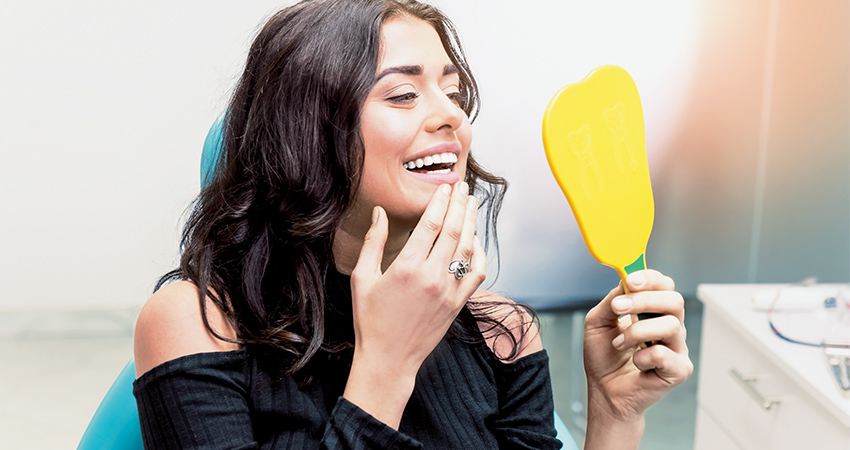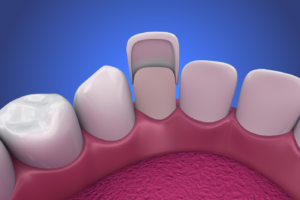
Ask Your Cosmetic Dentist* In Toronto: “Can Exercise Harm My Smile?”
With the new year here, our thoughts turn to the positive changes we can make in our own lives. Yes, resolution season is in full swing – and your cosmetic dentist* in Toronto wants to talk about it.
In most cases, these resolutions are for self-improvement. For some, that may mean getting the confidence of a bright white smile, for others it means a full body change.
The most common New Year’s resolutions revolve around exercise. There are all sorts of goals that people chase, such as:
- Losing weight
- gaining muscle
- looking better
- feeling better
- improving health.
Any steps towards a healthier, happier you are always good, right? As it turns out, there are oral health risks associated with exercise.
Exercise Can damage your teeth
Usually, when people think about physical activity damaging teeth, they think about dental emergencies like chipped, broken, or missing teeth. But more recently, studies are finding links between exercise and tooth erosion, cavities, and grinding.
The potential for dental emergencies is generally known with exercises. And most people know how to minimize risks through choice of exercise or protective wear. But tooth erosion, cavity risks, and damage from grinding teeth are generally less known.
Exercise causes tooth erosion and increases the risk of cavities
Researchers discovered a link between high levels of activity and an increased risk of cavities and tooth erosion. Initially, this was assumed to be a result of consuming sugary sports drinks and energy bars. Studies soon found that the oral health risks for athletes are high, regardless of sugar consumption.
It turns out that the actual cause for elevated dental risks among athletes is due to chemical reactions resulting from exercise. The Scandinavian Journal Of Medicine & Science in Sports published a study examining how this occurs.
In the study, the saliva of athletes and an inactive control group were tested and monitored. First, they were tested in an inactive state. The pH balance and amount of saliva were the same for both groups.
Then the athletes were put under physical stress with an endurance run. Saliva samples taken during the run uncovered two things:
- a high pH balance in saliva during physical exertion
- less saliva in the mouth.
The high pH balance means a greater alkalinity. This alkalinity has a dual effect. For one, it can serve to tooth erosion. For another, it reduces a protein the saliva produces that normally protects tooth enamel.
The reduction of saliva in the mouth leaves the enamel less protected and creates an environment where bacteria can thrive.
Intense exercise can cause grinding of teeth
This effect is most common in weight training. While lifting heavy weights, people are more prone to grinding their teeth. However, it can happen in any activity with intense physical exertion. In many cases, people are unaware they are grinding their teeth.
In addition to damaging teeth, grinding can result in headaches or TMJ syndrome. TMJ (temporomandibular joint) pain is often misdiagnosed. Symptoms can present themselves as migraines, face, jaw, neck, or shoulder pain. It’s worthwhile trying to be conscious of tooth grinding during a workout.
No excuses
While these risks are real, they aren’t a get-out-of-exercise-free card. There are precautions you can take to protect your teeth during exercise. So, there’s no need to give up on those resolutions just yet.
Conscious breathing
The way you breathe can reduce how dry your mouth gets. For most people, the immediate reaction to physical exertion is open mouth breathing. Open mouth breathing quickly dries out your mouth and is accelerated by hyperventilation.
It can feel unnatural at first but learning the Runner’s Breath helps to protect your oral health and improve athletic performance. There are two elements to this breathing technique, rhythm and pattern.
The rhythm is to slow down the pace of your breaths. In running, it is often advised to inhale for three steps, then exhale for two steps. The breathing pattern is to breathe in deeply through your nose, exhaling through your mouth. This helps to retain more saliva and moisture in your mouth, preventing bacterial growth and erosion.
Drink water
Be sure to keep your fluid levels high. Water is the ideal drink. Even though sugary energy drinks are not the primary cause of athletes’ dental problems, overindulgence is still a risk factor. By drinking more water, you stay safely hydrated and help to avoid drying your mouth out.
Wear a mouthguard
If you grind or are at risk of grinding your teeth, consider a mouthguard. Mouthguards are common in most contact sports as they help prevent concussions and damaged teeth from impact. More recently, however, mouthguards are becoming popular in non-contact activities as well.
Mouthguards serve a dual purpose for gym-goers. The first is they prevent damage and pain from grinding teeth. The second is that they can actually improve recovery time and athletic performance.
The Journal of Strength & Conditioning Research published a study showing the positive effects of mouthguards for training purposes. Wearing a mouthguard decreases the level of cortisol that builds up during exercise.
Cortisol is a stress hormone that inhibits recovery. It is released during physical activity when the teeth are clenched. A mouthguard prevents this clenching, stopping the excess production of cortisol. As a result, athletes recover and gain muscle faster.
Your cosmetic dentist in Toronto can fit you for a custom mouthguard. Using an over-the-counter boil & bite mouthguard is better than nothing, but long-term use can lead to changing the shape of your bite. A custom fit is the best way to protect your teeth.
Repairing already damaged teeth
If your teeth have already suffered damage there are a number of popular cosmetic dentistry* options in Toronto available, including:
- dental bonding
- porcelain veneers
- crowns
- bridges
- dental implants
Your cosmetic dentist* in Toronto can help
Whether you are taking on a challenging New Year’s resolution or keeping up with existing goals, oral health should always be a priority. If you’ve been searching “cosmetic dentistry* in Toronto”, you should schedule a visit with our welcoming team. We’d love to hear from you!
Yours in excellent dental health,
Dr. Judy Sturm, your cosmetic dentist* in Toronto
* In Canada, Cosmetic Dentist in Toronto and Cosmetic Dentistry in Toronto are not designated dental specialties.




